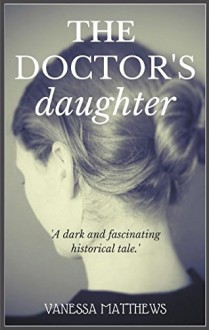Less than 1% of general population is believed to have narcissistic personality disorder (2%-16% of clinical population) of which 50-75% are male.

Narcissism, pathological narcissism & narcissistic personality disorder became a very popular & interesting subject for many clinicians & theorists. Most believe that some level of narcissism is healthy for a person, in order to be able to function in society & be able to face challenges, have drive for success & creativity. As to where the healthy narcissism ends & pathological begins is not exactly clear. Moreover, some believe that pathological narcissism IS narcissistic personality disorder, while others think that narcissistic personality disorder is a whole new level compared to pathological narcissism. As with any mental disorder diagnosis will vary from case to case, from society to society. Mental disorder is a dynamic concept & it never stays stale. So really the line of pathological narcissism is very blurry, unless one equals it to narcissistic personality disorder. As to when narcissism evolves into pathological personality disorder, one needs to understand what personality disorder is. Personality traits that are inflexible and maladaptive and cause significant functional impairment or subjective distress constitute personality disorder. Simply put personality traits are the way you perceive life, relate to others & environment, your thinking pattern. In other words, it all relates to individuals functioning in given society with given individuals personality traits & if those traits cause significant functional impairment or subjective distress, you’ve got yourself a personality disorder. As you can see, a fully functional human being with sound mental health in one society can become a persona with personality disorder in another society.
THE CHARACTERIZING SYMPTOMS OF NARCISSISTIC PERSONALITY DISORDER ACCORDING TO DSM-IV ARE:
- has a grandiose feeling of self-importance (e.g., exaggerates achievements, talents, overestimates abilities, expects to be treated as special & recognized as superior)
- is preoccupied with fantasies of huge success, power, beauty, ideal love, see themselves as a genius and often compare themselves to geniuses or famous people, depending on what they feel is important in life
- believes that he or she is “special”, different & unique and can not be understood by “regular” people. See themselves as a part of special or high status people or institutions & believe that’s the only place where they can be understood & accepted
- requires excessive admiration & reassurance of their achievements & superiority from others, constantly fishes for complements due to fragile self-esteem
- has a sense of entitlement, unreasonable expectations, expects other to comply with his/her expectations & becomes furious & puzzled if it doesn’t happen, always expects special treatment
- is interpersonally exploitative, expects others to bend their backs to help him/her achieve their goals; manipulates & takes advantage, is very likely to enter relationships for the sole purpose of achieving his/her goals or fulfilling their personal selfish needs
- lacks empathy, unable to relate to others & put himself/herself in other people’s shoes: needs of others are often viewed as weaknesses and an opportunity to manipulate using the vulnerability, often speak lengthy of themselves & impatient with others who want to speak about their problems
- is often envious of others and their achievements, believes that he/she deserved it more, harshly criticizes & tries to devaluate others’ achievements; also has a delusional belief that others are envious of him/her
- shows arrogant, patronizing attitudes, overconfident & ever knowing behaviors
Narcissists & Relationships
Narcissists generally avoid intimacy. They are unlikely to avoid sexual contacts or “business” relationships, but they tend to avoid entering a real relationship, mostly without even realizing this themselves. Much of this is caused by many of their personality traits, like inability to trust other people, inability to relate to others, inability to like others because of their sense of superiority & grandiosity. Finding & being in intimate relationships is a difficult task for people with NPD, however being in such relationships greatly reduces their dependence on reinforcing their self-esteem on sexual attractiveness, mental superiority or power. Relationships & attachments, need for achievements at work are probably some of the best recipes to tame down their excessive individualism. Narcissists generally have fantasies of ideal unconditional love. Given a reason to doubt the unconditionality of it, they’ll run away faster than you can imagine. Many people who are in relationships with narcissists make the mistake thinking that that the narcissist is likely to change. Unfortunately, these people are blinded by their own delusions & are setting themselves up for disappointment, because changes are unlikely to happen.
So I pretty much just copy and pasted some of the more interesting (in my opinion) points of this particular disorder. To read more click here >>> http://depressiond.com/narcissistic-personality-disorder/

 Log in with Facebook
Log in with Facebook 








